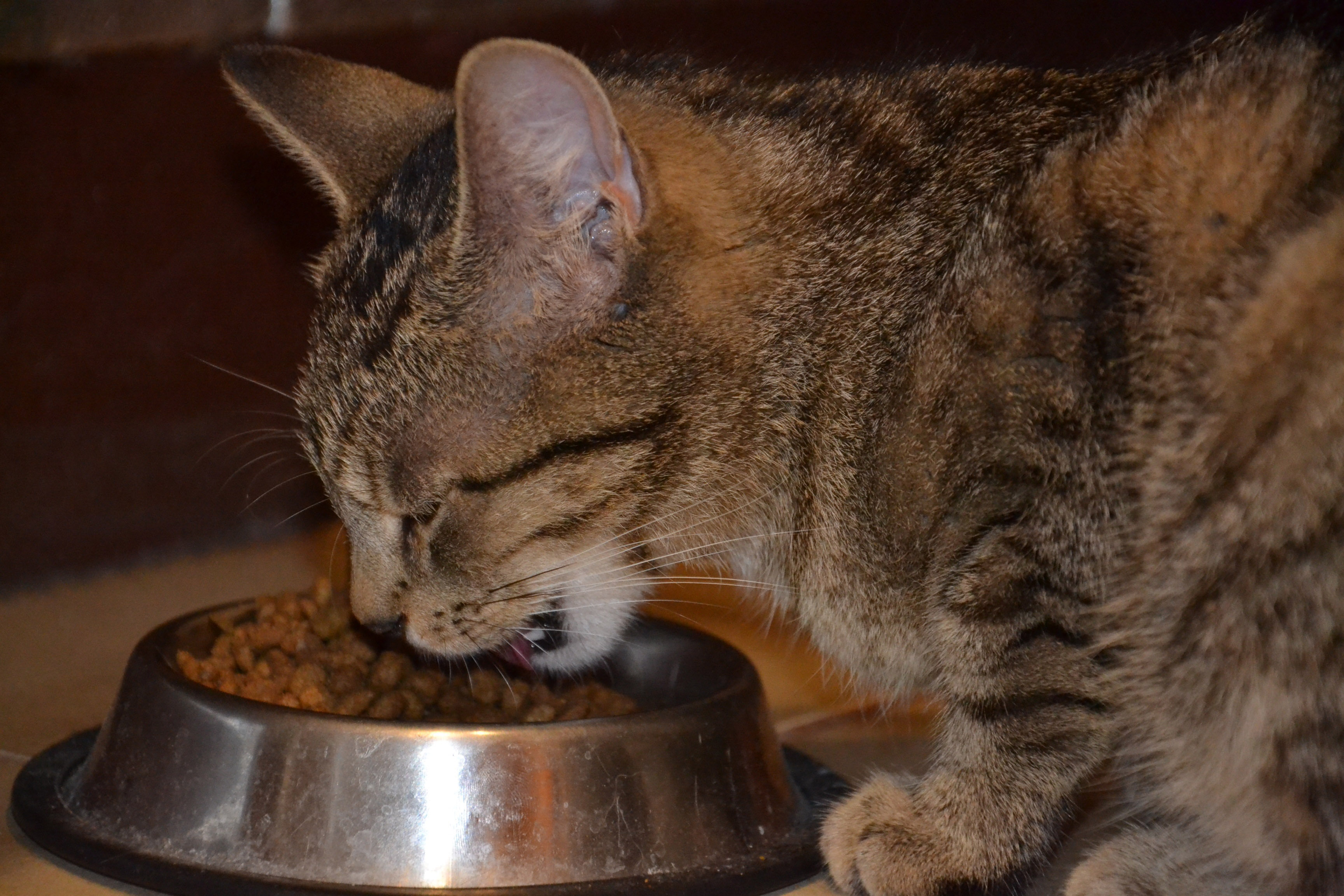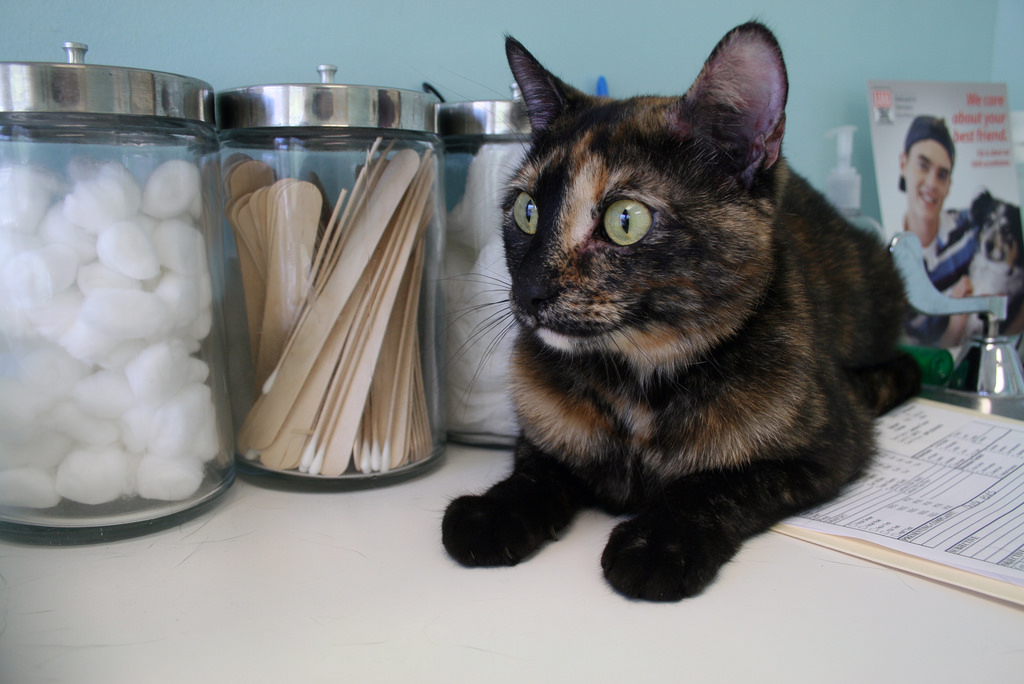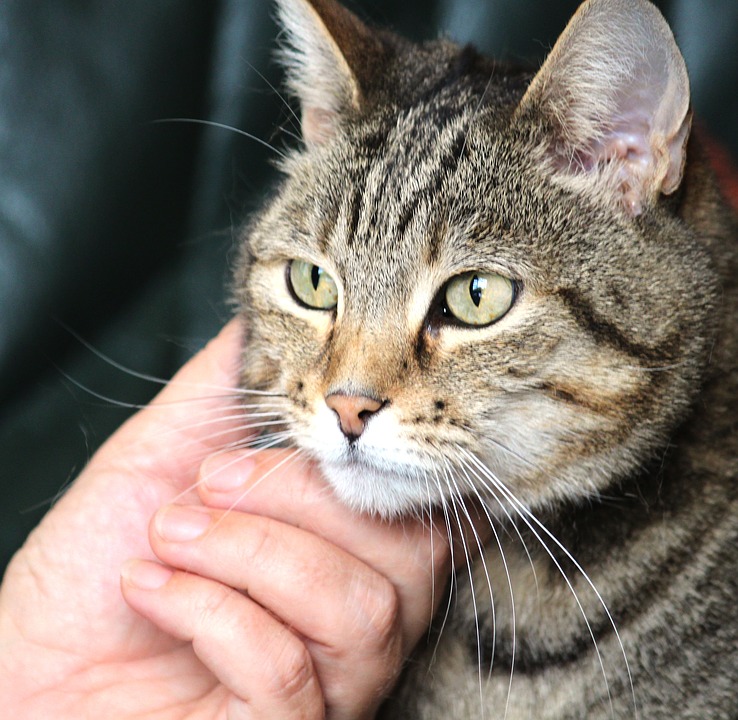Everything You Need to Know to Protect Your Pet's Heart - in Longmont
In February, hearts are on everyone's minds thanks to Valentine's Day. But did you know that February is also American Heart Month? It's the American Heart Association's hope to use this month to educate people about the threat of heart disease, and it's something that pet owners should also take notice of. Pets can develop issues with their heart health just like humans, but they have to rely on us to take notice. Knowledge and awareness are your best tools of defense in keeping your furry friend happy and healthy. Here is everything you need to know to protect your pet's heart, brought to you by our pet door installation experts in Longmont.
Watch Their Diet

Pets, like humans, require a healthy diet to maintain a healthy body. Obesity is the number one cause of heart disease, and the best way to prevent both is to feed your pet a well-balanced diet. If your pet is overweight, start by cutting back on their daily food intake and limiting the number of treats they receive throughout the day. Also, consider reviewing the meals you give them to make sure they have access to healthy foods in the first place. It's recommended by veterinarians that both cats and dogs be fed a meat-based diet (cats especially, as their diet must include taurine, which is only found in foods that are meat-based) but you should contact your vet if you have questions about your pet's diet and any changes that might have to be made to it.
Exercise Them Frequently

A pet's diet isn't the only essential part of keeping them at a healthy weight. Though what kind and how much depends on their breed, age, and size, every pet needs some form of daily physical activity. Paired with a well-balanced diet, regular exercise is just as important in helping them lead a healthy and active lifestyle; it helps them burn calories, keep agile, and get their heart pumping. This is an easy task for dog owners, as most love getting some fresh air and doing cardio. You can take your pick from activities such as running, walking, hiking, cycling, swimming, etc. Chances are they'll just be thrilled to be out of the house and make use of all their pent-up energy. If you have questions, you can consult with your veterinarian about what amount of exercise is recommended daily for your dog's breed (as a general rule, most breeds need a minimum of 30 minutes of physical activity per day). Cat owners, on the other hand, may have a harder time finding an activity their cat will enjoy doing. Most cats require at least 15 minutes of exercise daily, but oftentimes it can be difficult to even get them interested enough to get off the couch. Experiment with different toys and activities to find what your cat most prefers. You can even train them to leash-walk outside with a harness or to walk on the treadmill with your supervision if you start young and have some patience with the process.
Schedule Regular Vet Visits

Early detection of heart disease can mean the difference between life and death for some pets. Many pet owners, however, don't know what to watch for when it comes to detecting signs of heart disease in their pet; that's exactly what veterinarian visits are for! Scheduling regular yearly check-ups with your vet gives them the chance to closely monitor your pet's heart/overall health and detect issues before symptoms arise or the condition becomes too serious. Their life could be greatly prolonged if something is indeed wrong with their heart.
Know the Signs of Heart Disease

We mentioned above that many pet owners don't know how to recognize early signs of heart disease in their pets. While knowing some of the telltale symptoms certainly doesn't replace a routine vet visit, it does give you the advantage of a head start in between visits to tell if something could be amiss with your pet's heart. Some common signs of heart disease in pets you should be aware of include,
- Lethargy and/or weakness
- Fainting and/or collapsing
- Difficulty breathing
- Open-mouthed panting or breathing
- Coughing
- Loss of appetite
- Abrupt changes in behavior
- Agitation and/or restlessness
- Accelerated or slowed heart rate
- Sudden tendency to seek isolation
- Reduced tolerance to exercise
- Rapid and noticeable weight loss
- Weakness or paralysis in rear limbs
Be Wary of Heartworms

Heartworm disease is an especially scary health concern for pet owners. A mosquito-borne parasite that is found in all 50 states, it can cause pulmonary embolism, blood flow restriction, blood vessel inflammation, and, if left untreated, fatal heart failure. Their natural hosts are dogs, but cats can be infected just as easily with more severe results; unfortunately, treatment is nonexistent for cats and the first symptom that they have been affected is usually sudden death. Treatment for dogs is possible but expensive and painful, and dogs can still be left with permanent heart damage if treatment comes too late. The good news? Prevention is very easy and effective for both cats and dogs with a pill or topical product administered to them once every month. Heartworm blood tests are also recommended every two or three years, especially and more often for pets who don't have prevention medication. If you have questions or concerns about heartworm prevention and/or treatment, contact your veterinarian to speak about what's best for your pet.
Brush Their Teeth

Your pet's teeth may seem far removed from issues related to their hearts, but gum disease in pets has been linked to the development of heart disease. Plaque and infection in your pet's mouth can find its way into their bloodstream and eventually lead to congestive heart failure. Further health concerns can also occur, such as kidney and liver failure. Brushing your pet's teeth and keeping up with their dental health can prevent this. If you notice unusual problems like bleeding gums, foul breath, or sore gums, contact your vet.
You want your furry friend to be around for as long as possible, but in order to do that they need to have a healthy heart. Prevention and/or treatment for heart diseases isn't something that your pet can seek after themselves; they depend on you to help keep them and their heart in good condition. Knowing how to protect your pet from heart disease and where to find medical care if they develop it will increase your pet's chance of leading a long and happy life. Do you have any questions? Contact Glass Pet Doors today to discuss installing the perfect pet door for sliding glass door in Longmont for your pet, giving them access to more exercise and keeping their heart healthy.


